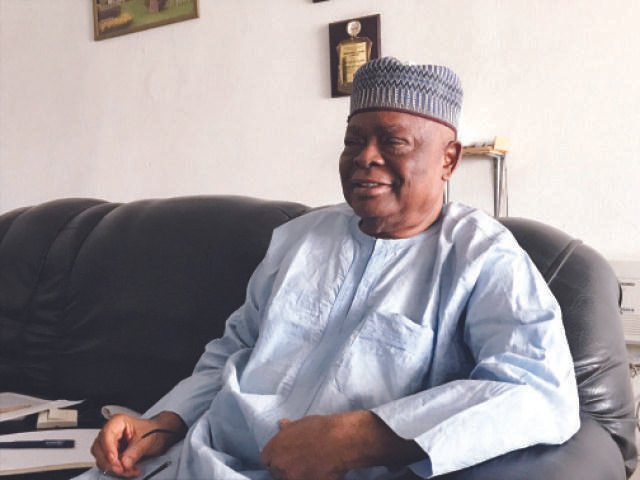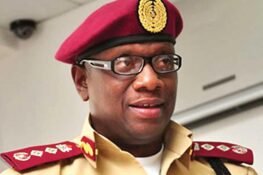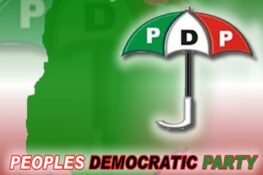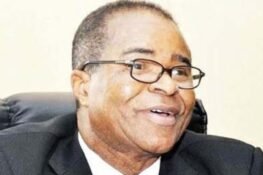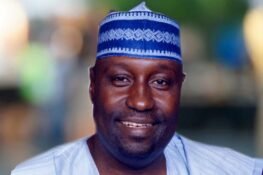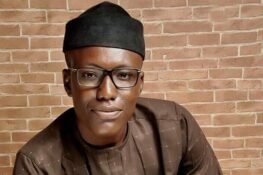In this interview, elder statesman and chairman of the Nigeria Discussion Group (NDG), Alhaji Musa Maigida Abdu, said President Muhammadu Buhari should make choices that will help him build a legacy:
What is the NDG’s position on the general elections?
First, I would like to, on behalf of myself and the members of the NDG, congratulate President Muhammadu Buhari on his well-deserved victory.
As one foreign newspaper said, the election was, in a way, a referendum on integrity and the result was clear. We pray for good health, strength and wisdom for him to fulfill the mandate that Nigerians have given him.
After his victory, the President reportedly said his second term would be tough. How do you interpret that?
Nigerians have been through – and are still going through – very tough times. I think what they are looking forward to is hope, and re-assurance that the days ahead would be better, and that their sacrifice would not be in vain.
The toughness which the President reportedly spoke about may be in the context of the work that needs to be done; but I’m sure he understands that the people need a reassurance of hope now more than ever before.
When politicians are desperate to win, it’s very difficult to have the kind of peaceful and free outcome we all desire
How would you describe the role of INEC, especially the complaints by some politicians in the opposition that the commission is partisan?
In any election, losers will often complain. You will recall that even in the 2016 election in the US, candidate Donald Trump even complained that if he lost, it would mean that the election was rigged! So, complaints are not new.
As far as NDG is concerned, however, INEC can do a lot better. It is not an acceptable state of affairs that INEC spent four years planning, after getting all the resources it asked for, but could still not conduct the election on the agreed date.
There are also genuine complaints and concerns about the frequency of inconclusive elections. I’m sure INEC will try to improve in its decision making, logistics, and delivery.
But keep in mind, too, that all stakeholders, especially the politicians, have a role to play as well. When politicians are desperate to win, it’s very difficult to have the kind of peaceful and free outcome we all desire.
People often criticise President Buhari as often neglecting those who worked hard to support his campaign. Do you think that may happen again this time?
(Smiles)…I know people who shared his vision from the beginning in 2002 or thereabout, who worked towards actualising such vision both openly and sometimes covertly.
They have invested so much in time and resources on the project over the years and they took personal risks; but were not appropriately accommodated in the governance structure after 2015 win.
In other words, they were not properly compensated – as Nigerians would say. Thus, their potential contribution to the collective vision was nearly lost.
Some have already gone, while others have remained against all odds. I think President Buhari should, this time, listen more to the well-meaning Nigerians, and in particular to his wife, who in fact has contributed in no small measure to his electoral success during the two campaign seasons.
That is to say, he should bring along competent hands among such people that were not ‘compensated’ to play an active role in the upcoming dispensation.
In any case, I have listened to the President’s comments recently on television, where he said he would compensate such people.
I hope that people around him would ensure that he does not forget this public commitment.
How would you rate the performance of the outgoing cabinet?
Clearly the President picked those that he apparently personally liked, and whom he thought would deliver. But regrettably most of them failed to perform, letting down not only the President, but the country as a whole.
This time, the President should be dispassionate and firm; focused on capacity to deliver, competence, track record, and professionals, most especially, within the party ranks, because there are many such people within the party cadre.
He needs professionals that are bridge builders also, because together these are the people who will help him and help the country make choices that will produce a long-lasting legacy, which is really what the President needs now more than anything else.
He did very well in ensuring security in this first term. He has left no one in doubt that security has been significantly restored in the North East
We hear so much noise about major corruptions mainly in the media, but yet very few convictions. It’s an area the President will need to pay attention to
What specific areas do you think the President needs to focus on as soon as he begins his second term?
The three areas prioritised earlier by the President are still important and very relevant – security, the economy, and the fight against corruption.
He did very well in ensuring security in this first term. He has left no one in doubt that security has been significantly restored in the North East.
You also remember that only recently we had roadblocks even here in Abuja. But now the situation has eased and confidence restored.
No one can take that credit away from him because we need peace and security to do anything at all. Also, getting the country out of recession, especially considering the situation in which he met the economy was not an easy job.
However, in his second term, execution should be a key strategy across all fields of priority.
In security, for example, considering the population growth rate, greater use of technology will be essential in dealing with the symptoms of insecurity.
However, the actual underlying factors would have to be addressed from the roots through the provision of quality education, greater opportunities, inclusiveness and hope for all citizens.
On the economy, the President needs the right pool of talents to bring ideas to the table to generate resources within the economy that will help stimulate growth and development.
I cannot over-emphasise the need to get the right talents in various fields as quickly as possible because it is only by so doing that the right ideas can be generated.
Those of us who are fortunate to travel abroad and see how major cities are run, with good infrastructure and technology we would like to see that happens here in our lifetime and only by getting the right talents can you achieve that.
Using the right talents to manage and regulate our institutions will also inspire confidence of the investing community around the world.
On agriculture, the President has done extremely well especially in making fertilisers available in timely manner and at fairly affordable rates across the country.
The government has also done well in drastically reducing rice imports. But there’s still work to be done. For example, a number of genuine big-time farmers could not access the intervention funds from the Central Bank, while a few around government were playing with the said funds.
That needs to be addressed. An impression has also been created that rice importation has stopped. This may be so officially, but there’s still foreign rice finding its way into the country and the President needs to know this.
I think the President should look at the whole supply chain, deal with the root causes and remove incentives from smugglers by channeling government’s support to the appropriate beneficiaries.
With respect to electrical power, in the twilight of the Jonathan’s administration he unbundled and privatised the sector.
While a few of the companies are doing well, others are not being well-run at all, and consumers are at the receiving end while government continues to inject its funds in order to subsidize their operations.
In fact, the federal government should review the condition precedent for the privatization of the unbundled companies and impose appropriate sanctions for defaults.
Government should guard against assets stripping and financial leakages in such companies, because 24/7 power supply is the key to growth, security, and the health of the economy as a whole.
We cannot continue to behave as if we are helpless. No. Remedial action needs to be taken quickly, based on performance of the companies.
And finally on the fight against corruption the President has raised the bar. Unfortunately, in a number of cases incompetent-prosecution and silly mistakes have significantly affected the number of convictions.
So, we hear so much noise about major corruptions mainly in the media, but yet very few convictions. It’s an area the President will need to pay attention to.
The children out-of-school, especially in the North West and North East are just too many, and that cannot be sensibly ignored. It is already fuelling hopelessness in the society
Youth unemployment and education were major issues in the last election. What do you think the President needs to do to tackle these problems?
You are right. On education, we believe that there is a major divide, especially between the North and the South. There are so many children out of school across the country.
We have seen a figure of 13million dished out during the recent campaigns, but this could well be an underestimation.
The children out-of-school, especially in the North West and North East are just too many, and that cannot be sensibly ignored. It is already fuelling hopelessness in the society.
And when there is no hope, people naturally feel that they have no stake, and when they feel they have no stake they often lend themselves to all sorts of violent crimes.
Somebody who does not think that he or she has any stake will not care whatever is blown up or whether somebody else is sleeping well or not.
The President should thus work with state governors in the affected areas to ensure that they optimise the use of UBEC and other related institutions to possibly come up with special intervention projects, to as much as practical, bridge the educational gap.
To me, there is a link between education – especially the right kind and quality of education, – and youth unemployment.
